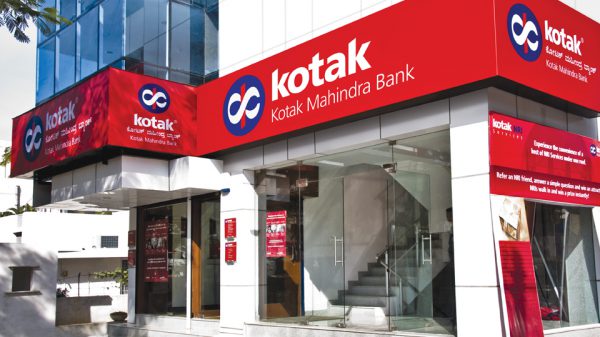We’re especially pleased to announce that MP Ritesh Pandey, Member of the Joint Parliamentary Committee on the Personal Data Protection Bill will be giving the keynote address at Decoding India’s Data Protection Bill, a two-day virtual conference organized by MediaNama on the 19th and 20th January.
Event: Decoding India’s Data Protection Bill
Session: Keynote Address
Date: 19th January, 2021
Time: 2:00 PM – 3:00 PM IST
This is an invite-only event. Please register here to attend.
About the Speaker
Ritesh Pandey is a Member of Parliament representing Ambedkar Nagar in Uttar Pradesh. In Parliament, Ritesh has highlighted pressing issues related to climate change, caste equality, transgender rights, press freedom, and farmers welfare. He is the Floor Leader of the Bahujan Samaj Party in the Lok Sabha, being one of the youngest parliamentarians to lead a major national party in Parliament. He is also the Chairman of the Parliamentary Committee on Papers Laid on the Table of the House, and a member of the Parliamentary Standing Committee on External Affairs, as well as the Joint Parliamentary Committee to Examine the Personal Data Protection Bill, 2019. Prior to being elected as a Lok Sabha MP, he served as an MLA in the UP Vidhan Sabha.
In his dissent note on the Joint Parliamentary Committee’s report on the Data Protection Bill, Pandey recommended the following changes to Data Protection Bill 2021:
1. Age of consent too high, not in the best interest of children: Section 3(8) of the Bill defines a “child” as a person who has not completed eighteen years of age. Data fiduciaries processing children’s data have a different set of obligations to follow including getting consent from a parent or guardian before processing the child’s data.
- Proposed amendment: Pandey has recommended bringing down the age of consent to fourteen years.
- Rationale: Pandey argued that the current definition “does not stand with the principle of the best interest of a child in the digital age.”
2. Government exemptions: According to Section 35, the Central Government has the power to exempt any government agency from all or any of the provisions of the Data Protection Act for various reasons.
- Proposed amendment: Pandey has recommended that any exemption should be granted based on the principle of necessity and proportionality and under no circumstances should any government agency be exempted from sections 5 and 24. Section 5 lays down that personal data must be processed in a fair and reasonable manner and ensure the privacy of the data principal and for the purposes that the data principal consented to, while section 24 deals with security safeguards such as encryption and measures to prevent unauthorised access.
- Rationale: Pandey wrote that Section 35 “gives broad-reaching and unfettered power to the central government” and referred to the Personal Data Protection Bill, 2018 (“the Srikrishna Bill”), which allowed government access to personal data for security purposes based on principles of necessity and proportionality and upon due authorisation under law.
3. Selection Committee for DPA members must be impartial and independent: According to Section 42 of the Bill, the Chairperson and the Members of the Data Protection Authority will be appointed by the Central Government on the recommendation made by a Selection Committee. The Selection Committee will be constituted by:
- The Cabinet Secretary, who shall be Chairperson of the Selection Committee
- The Attorney General of India
- The Secretary to the Government of India in the Ministry or Department dealing with the Legal Affairs
- The Secretary to the Government of India in the Ministry or Department dealing with Electronics and Information Technology
- An independent expert to be nominated by the Central Government from the fields of data protection, information technology, data management, data science, data security, cyber and internet laws, public administration or related subjects
- A Director of any of the Indian Institutes of Technology to be nominated by the Central Government
- A Director of any of the Indian Institutes of Management to be nominated by the Central Government.
- Proposed amendment: Ritesh Pandey has suggested that the Selection Committee must also include a Supreme Court judge appointed by the Chief Justice of India and that the Committee must have a flat hierarchical structure i.e. each member has an equal vote and equal power within the committee. Furthermore, the industry expert and academic experts must be confirmed by Parliament, Pandey said.
- Rationale: “The J, Srikrishna Committee Report emphasized that the independence of the DPA is of paramount importance to the welfare of data principals and the growth of India’s technology industry. Therefore, it is vital to ensure that the members of the DPA are impartial and independent of outside influence from any party including the central government,” Pandey wrote in his dissent note.
Decoding India’s Data Protection Bill: Agenda and Speakers
Day 1: Jan 19, 2021
-
02:00 PM – 02:45 PM: Opening Keynote Address by Ritesh Pandey, Member of Parliament (Lok Sabha), Member of the Joint Parliamentary Committee on the Personal Data Protection Bill 2019.
-
03:00 PM – 04:30 PM: Obligations of Data Fiduciaries
Session Chair: To be finalized
Speakers: Nehaa Chaudhari (Ikigai Law), Ulrika Dellrud (Chief Privacy Officer, PayU), Uthara Ganesh (Snap) and Udbhav Tiwari (Mozilla) -
04:45 PM – 06:00 PM: Cross border data flows
Session Chair: Prasanto Roy (Public Policy Advisor)
Speakers: Jyotsna Jayaram (Partner, Trilegal), Ashish Aggarwal (VP & Head of Public Policy, NASSCOM), Rahul Sharma (Founder, The Perspective and Grade Ace) and Sijo Kuruvilla George (Executive Director, ADIF)
Day 2: Jan 20, 2021
-
02:00 PM – 03:00 PM: Powers of the Data Protection Authority
Session Chair: S. Chandrasekhar (Head – Digital and Cyber Practice, K&S Partners)
Speakers: Renuka Sane (Associate Professor, NIPFP), Smriti Parsheera (Fellow, CyberBRICS) and Alok Prasanna Kumar (Co-founder and Lead, Vidhi Karnataka) -
03:15 PM – 04:30 PM: User Rights and the Data Protection Law
Session Chair: To be finalized
Speakers: Vrinda Bhandari (Independent Legal Practitioner, Supreme Court of India), Amber Sinha (Executive Director, Center for Internet and Society) and Lalit Panda (Senior Resident Fellow, Public Law Team, Vidhi Center for Legal Policy) -
04:45 PM – 06:00 PM: Government Access to Data
Session Chair: Vaneesha Jain (Associate Partner, Saikrishna & Associates)
Speakers: Anushka Jain (Associate Counsel, Surveillance & Transparency, Internet Freedom Foundation), Saikat Datta (Founding Partner, DeepStrat) and Jhalak Kakkar (Executive Director, Center for Communication Governance, NLU Delhi)
This is an advertisement for MediaNama’s event. MediaNama’s Native Advertising policy can be seen here, and past ads here. In case you’d like to support this discussion or others like it, please let us know here.






























